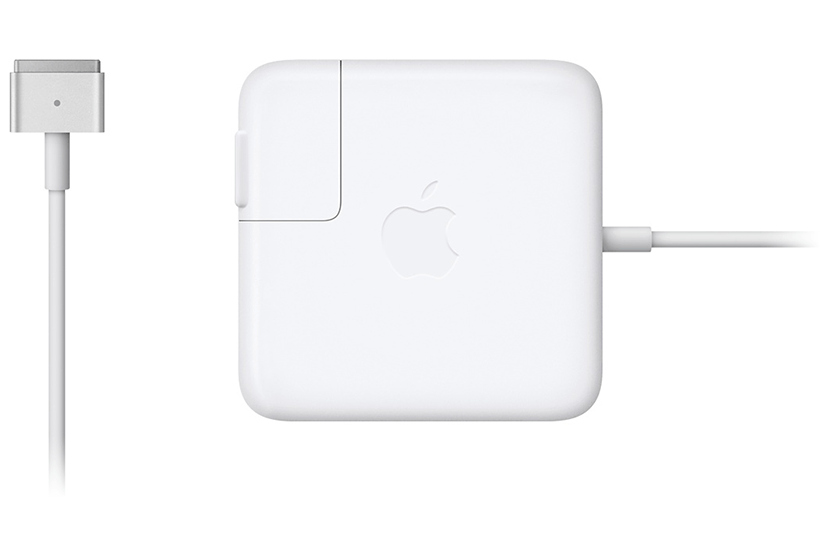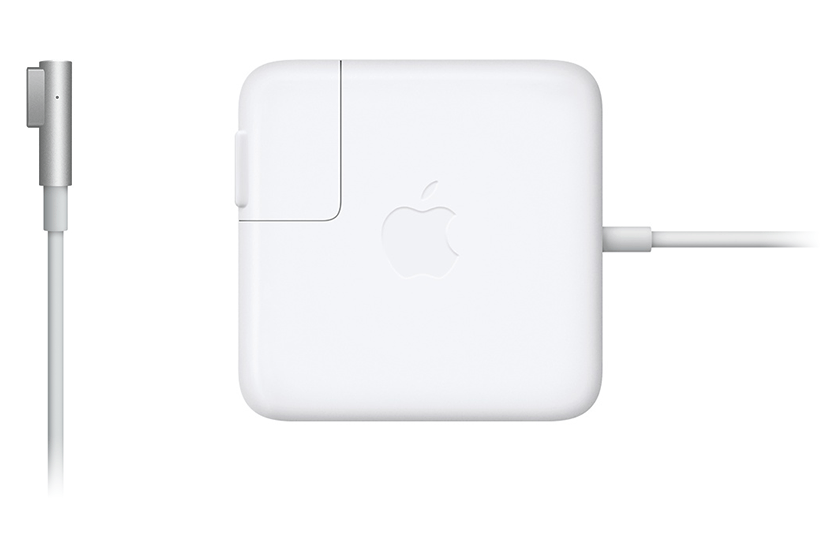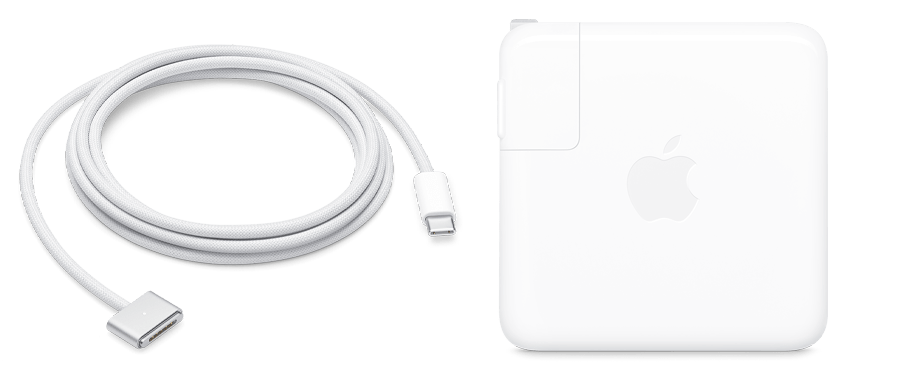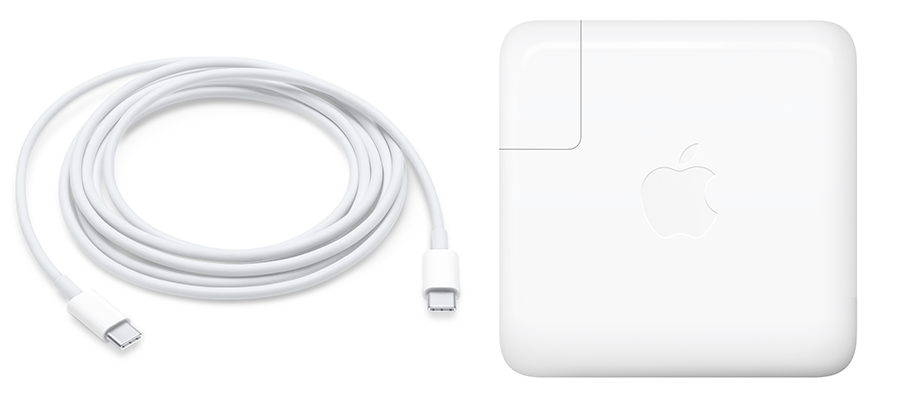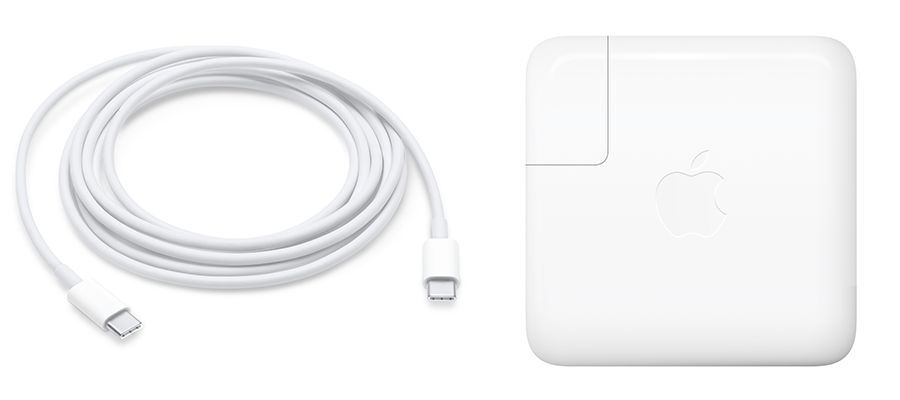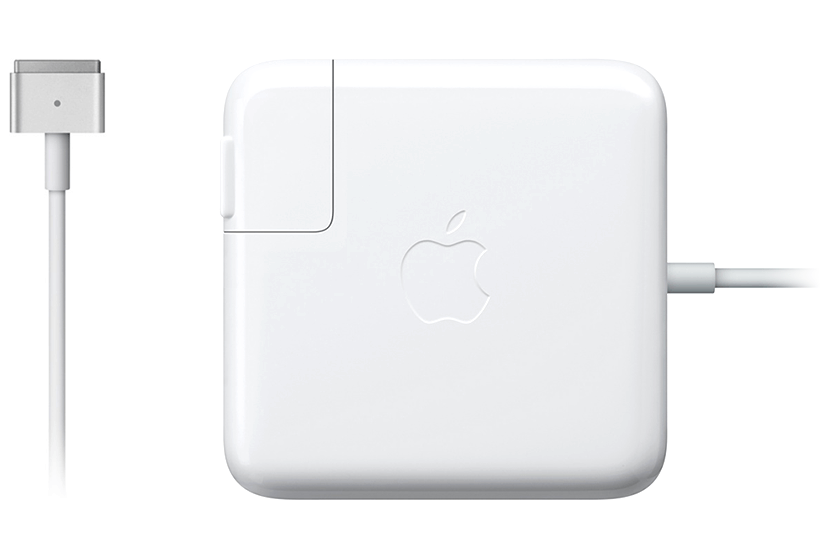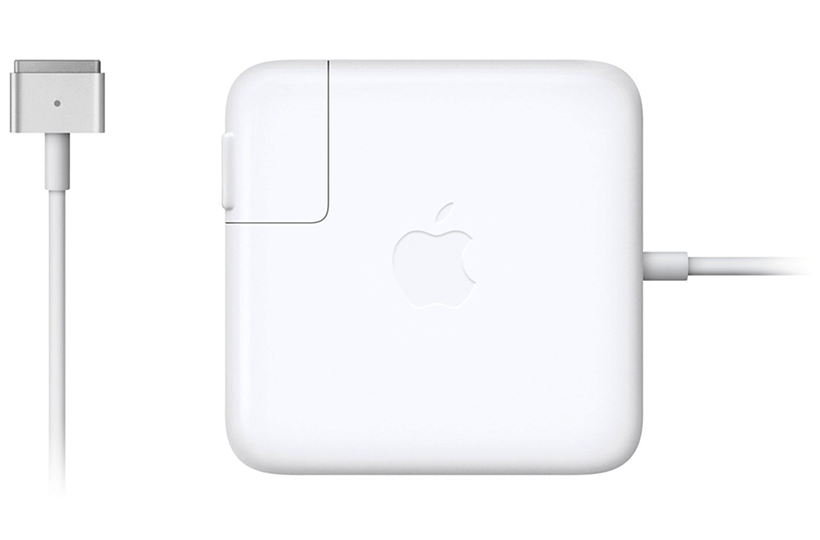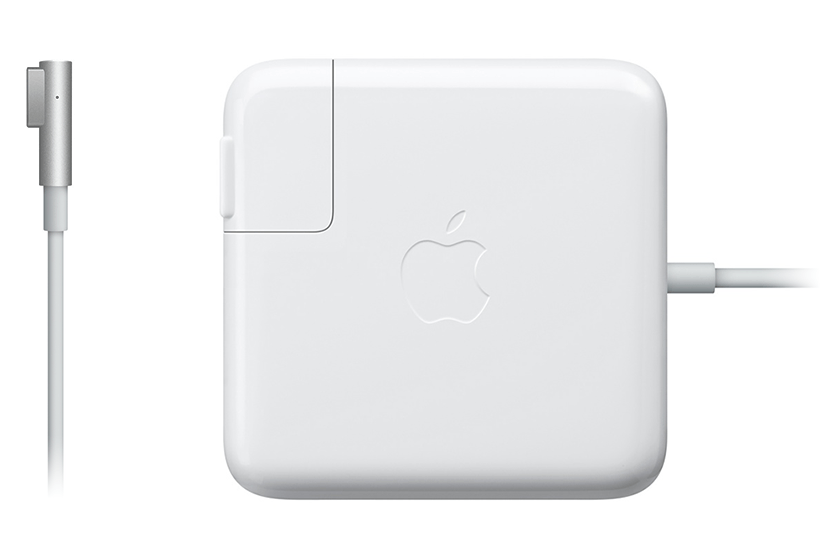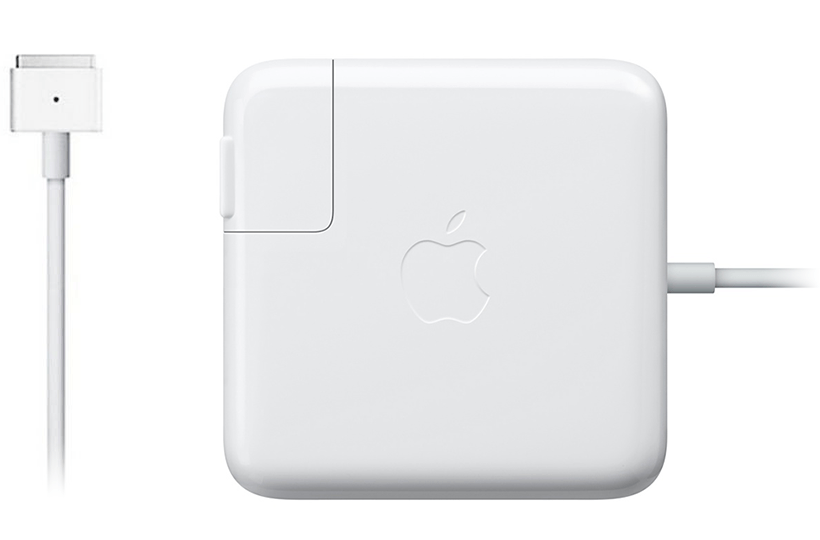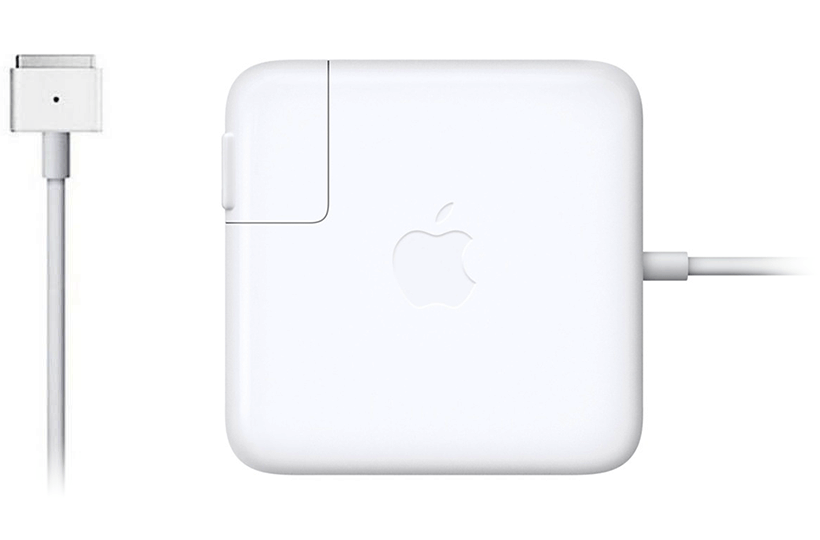- About Mac power adapters
- MacBook Air
- MacBook Pro
- MacBook
- Learn more
- If your MagSafe cable or power adapter isn’t working
- Identify your MagSafe cable or adapter
- Check power
- Check the power outlet
- Confirm the adapter wattage
- Check for line noise issues
- Check the plug, MagSafe connector, and cables
- Check the AC plug or cable
- If you see a spark
- Check the power port
- If the indicator light flashes
- Check for strain relief (MagSafe 2 or earlier)
- If the adapter gets warm
- Check for updates
- Get your power adapter evaluated
About Mac power adapters
Learn which power adapter and cable comes with your Mac notebook computer.
If your Mac uses USB-C to charge, you can charge your Mac notebook with any USB-C power adapter or display. For the best charging experience, you should use the power adapter and cable included with your Mac notebook.
MacBook Air
The images below show the style of adapter that comes with each MacBook Air. If you’re not sure which model you have, learn how to identify your MacBook Air.
Apple 30W USB-C Power Adapter and USB-C Charge Cable
- MacBook Air models introduced in 2018 or later
45W MagSafe Power Adapter with MagSafe 2 style connector
- MacBook Air models introduced in 2012 through 2017
45W MagSafe Power Adapter with «L» style connector
- 13-inch MacBook Air models introduced in 2008 through 2011*
- 11-inch MacBook Air models introduced in 2010 through 2011
* Adapters that shipped with the MacBook Air (Original), MacBook Air (Late 2008), and MacBook Air (Mid 2009) are not recommended for use with MacBook Air (Late 2010) models. When possible, use your computer’s original adapter or a newer adapter.
MacBook Pro
The images below show the style of adapter that comes with each MacBook Pro. If you’re not sure which model you have, learn how to identify your MacBook Pro.
Apple 67W or 96W USB-C Power Adapter and USB-C to MagSafe 3 Cable
- 14-inch MacBook Pro models introduced in 2021
Apple 140W USB-C Power Adapter and USB-C to MagSafe 3 Cable
- 16-inch MacBook Pro models introduced in 2021
Apple 96W USB-C Power Adapter and USB-C Charge Cable
- 16-inch MacBook Pro models introduced in 2019
Apple 61W USB-C Power Adapter and USB-C Charge Cable
- 13-inch MacBook Pro models introduced in 2016 or later
Apple 87W USB-C Power Adapter and USB-C Charge Cable
- 15-inch MacBook Pro models introduced in 2016 or later
85W MagSafe Power Adapter with MagSafe 2 style connector
- 15-inch MacBook Pro models introduced in 2012 through 2015
60W MagSafe Power Adapter with MagSafe 2 style connector
- 13-inch MacBook Pro models introduced in 2012 through 2015
60W MagSafe Power Adapter with «L» style connector
- 13-inch MacBook Pro models introduced in 2010 through 2012
85W MagSafe Power Adapter with «L» style connector
- 15-inch MacBook Pro models introduced in 2010 through 2012
- 17-inch MacBook Pro models introduced in 2010 through 2011
85W MagSafe Power Adapter with «T» style connector
- 15-inch MacBook Pro models introduced in 2006 through 2009
- 17-inch MacBook Pro models introduced in 2006 through 2009
60W MagSafe Power Adapter with «T» style connector
- 13-inch MacBook Pro models introduced in 2009
MacBook
The images below show the style of adapter that comes with each MacBook. If you’re not sure which model you have, learn how to identify your MacBook.
Apple 29W or 30W USB-C Power Adapter and USB-C Charge Cable
- MacBook models introduced in 2015 or later
60W MagSafe Power Adapter with «L» style connector
- MacBook models introduced in late 2009 through 2010
60W MagSafe Power Adapter with «T» style connector
- MacBook models introduced in 2006 through mid 2009
Learn more
If you need help using your MagSafe cable or adapter, learn what to do if your MagSafe cable or power adapter isn’t working.
If you have an older MagSafe adapter, you can use it with Mac computers that have MagSafe 2 ports using a MagSafe to MagSafe 2 Converter.
The MagSafe to MagSafe 2 Converter is not compatible with MagSafe 3.
Источник
If your MagSafe cable or power adapter isn’t working
Learn what to do if the MagSafe cable or power adapter that came with your Mac notebook computer stops charging or exhibits other behaviors.
Identify your MagSafe cable or adapter
If your Mac uses MagSafe to charge the battery, it uses either a MagSafe 3 connector, MagSafe 2 connector, or a T style or L style MagSafe connector. To identify your cable or adapter, use the list below to find your MagSafe connector.
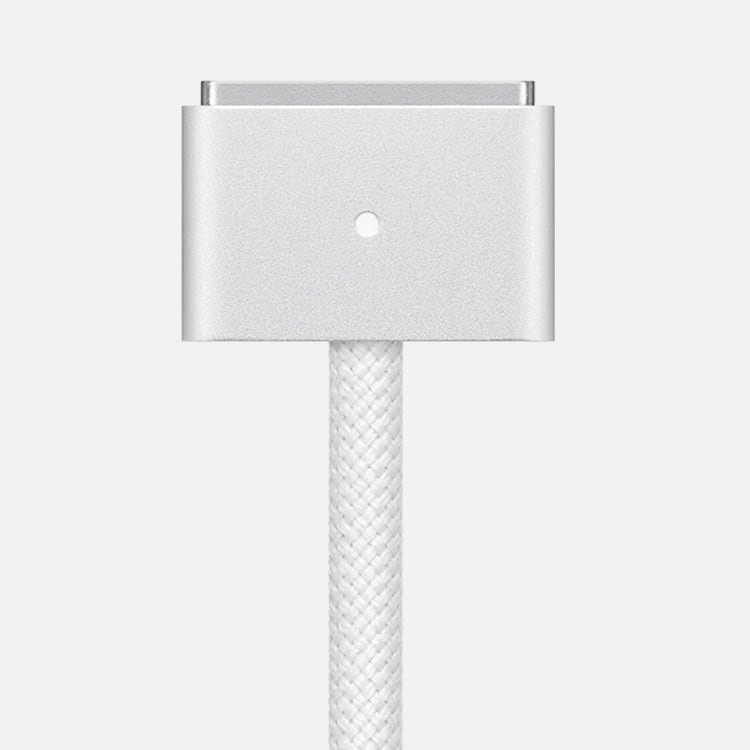
MagSafe 3 connector
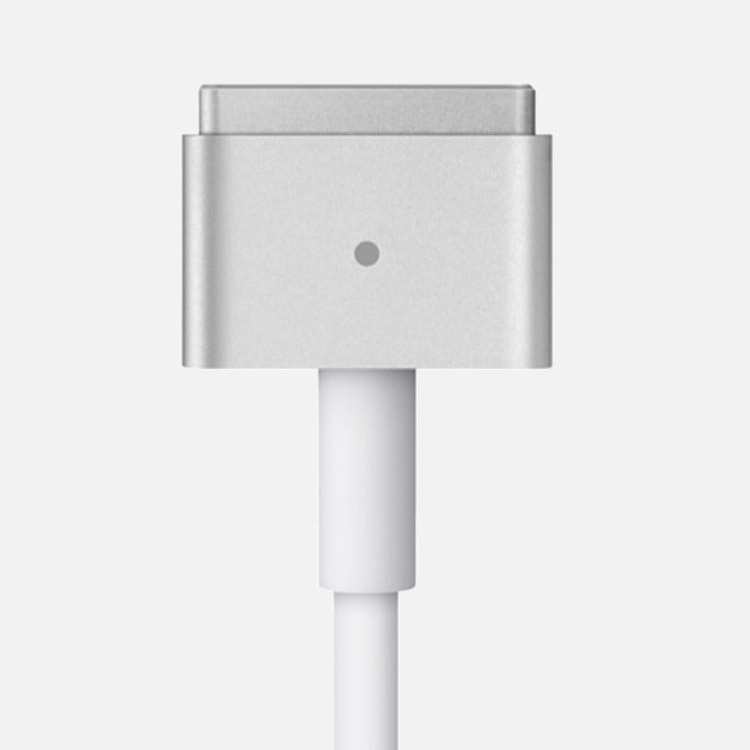
MagSafe 2 connector
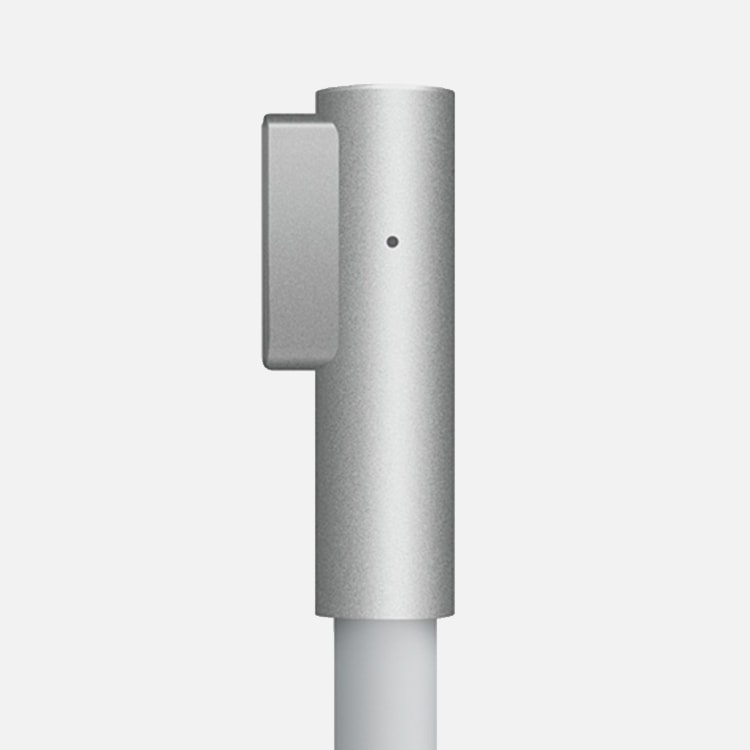
L style MagSafe connector
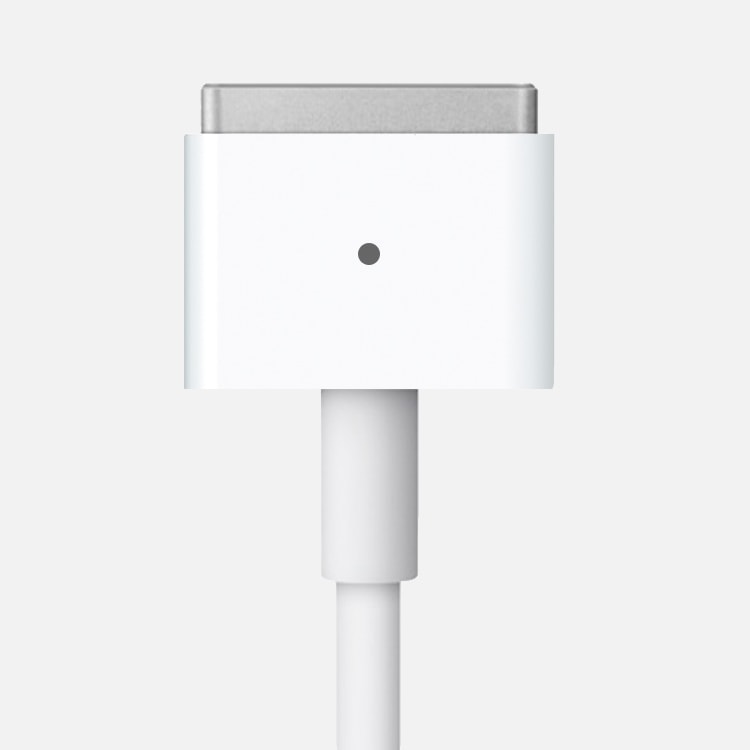
T style MagSafe connector
If your Mac uses MagSafe 3, you can charge your Mac with a USB-C to MagSafe 3 Cable and a USB-C power adapter.
If your Mac uses MagSafe 2, you can charge your Mac with a MagSafe 2 power adapter or a MagSafe power adapter connected with the MagSafe to MagSafe 2 converter.
If your Mac uses MagSafe, you can charge your Mac with a T style or L style MagSafe power adapter.
The MagSafe connector and MagSafe port on your Mac notebook contain a magnet that can possibly erase data on a credit card or other magnetic devices. Keep magnetic media away from the end of the MagSafe adapter and away from the MagSafe port.
MagSafe 2 and MagSafe power adapters aren’t compatible with MagSafe 3.
Check power
Learn how to check your power outlet and confirm your adapter wattage.
Check the power outlet
Make sure that you’ve connected your power adapter to a working power outlet. Unplug your power adapter from the power outlet, then plug in a known good device, such as a lamp or clock to confirm it powers on properly. If the power outlet works, connect your power adapter and try to charge your Mac. If your Mac still won’t charge, shut down your Mac and close the display for 30 seconds, then open the display and try to charge your Mac again. If you’re not using a Mac with Apple silicon, reset the SMC.
Confirm the adapter wattage
Make sure that the proper wattage power adapter for your notebook computer is used. For the best charging experience, you should use the power adapter and cable included with your Mac notebook.
Check for line noise issues
Unplug the power adapter from the wall, wait 60 seconds, then plug the adapter back in.
- If the adapter works after this 60-second «rest», you most likely have a line noise issue with your power source. You should reset the adapter periodically by repeating this moment of rest. This issue occurs when the AC adapter’s over-voltage protection feature senses ground noise and then turns off the adapter.
- Some possible sources of line noise include lights with ballasts, refrigerators, or mini-refrigerators that are on the same electrical circuit as your computer. This behavior may not occur if you plug the power adapter into an uninterruptible power supply (UPS) or plug it into a different circuit.
If your power adapter continues to turn itself off when connected to a known good outlet, take your adapter to an Apple Authorized Service Provider or Apple Store for further evaluation.
Check the plug, MagSafe connector, and cables
Learn how to test the plug and cables and check them for damage.
Check the AC plug or cable
Your power adapter comes with a removable AC plug that has the blades you insert into an electrical outlet. If your Mac notebook doesn’t charge when using the AC plug with the power adapter, try it with another Apple AC plug, or try using an Apple Power Adapter Extension Cable (sold separately).
If your power adapter works after changing out the AC plug or AC cord, the AC plug or AC cord that was originally in use should be replaced and no longer used.
If you see a spark
Sometimes when you plug the power adapter into the wall, you may see a spark. This is usually normal and can occur when you plug any electrical appliance into a live outlet. If the spark comes from somewhere other than the blades of the plug, if you experience any damage or discoloration of the adapter, or if you have other concerns about sparking, contact Apple.
Check the power port
Make sure that the power port (where you plug in the MagSafe connector) is clean and free of debris. The port is magnetic and might attract metal objects.
If the indicator light flashes
If the indicator light on the MagSafe 3 connector flashes amber repeatedly, try these steps:
- Disconnect the USB-C to MagSafe 3 Cable from your Mac and from the power adapter.
- Disconnect the USB-C power adapter from the wall outlet.
- Use a dry cloth to wipe the MagSafe 3 port and MagSafe 3 connector. Make sure both the port and connector are dry and clear of any debris.
- Make sure the USB-C port on the power adapter and the USB-C connector are clear of any debris.
- Restart your Mac.
- Connect the USB-C power adapter to the wall outlet, connect the USB-C to MagSafe 3 Cable to the power adapter and to your Mac, then try charging again.
If the indicator light continues to flash repeatedly, contact Apple.
Check for strain relief (MagSafe 2 or earlier)
If your DC cable (the thin cord that attaches the MagSafe 2 or MagSafe connector to the power adapter) separates at either end of the cable, immediately stop using the cable and get your cable and power supply evaluated. Learn how to reduce cable strain on your MagSafe power adapter.
If the adapter gets warm
The power adapter can become warm during normal use, so be sure to use it in a well ventilated area. Always plug the power adapter directly into a power outlet using the AC plug, or place it on a table or other well ventilated area.
Avoid placing your adapter in a poorly ventilated area, like on a couch, thick carpeting, bedding, or a pillow. Avoid covering the adapter with a blanket or other insulation.
The power adapter might turn itself off if it gets too warm. If this happens, disconnect the MagSafe connector from your Mac notebook, then let the power adapter cool down before handling it.
Check for updates
In some cases, software or firmware updates might be available for your computer that improve communication with your power adapter. If your MacBook, MacBook Air, or MacBook Pro isn’t charging as expected, check for software updates on your Mac.
Get your power adapter evaluated
If your power adapter still isn’t working, you can bring it and your Mac notebook to an Apple Store or Apple Authorized Service Provider for evaluation.
Источник

